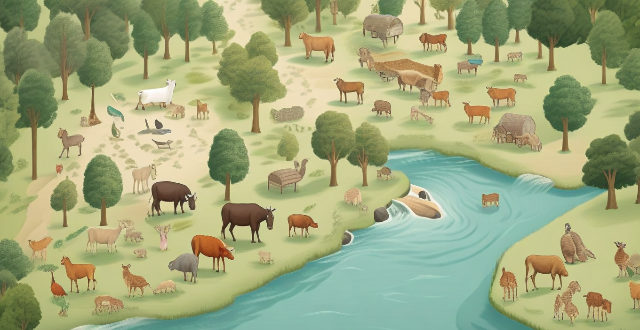Camping in the wilderness can be a thrilling experience, but it's crucial to prioritize safety. Research the area, plan your route, and inform someone of your whereabouts. Pack essential gear, food, water, and emergency supplies. Be prepared for wildlife encounters by storing food properly and making noise while walking. Follow campfire safety rules, know basic survival skills, and respect nature by leaving no trace and adapting to changing conditions. Safety should always be the top priority when exploring the outdoors.

Tips for Staying Safe While Camping in the Wilderness
Camping in the wilderness can be an exciting and rewarding experience, but it's important to prioritize safety. Here are some tips to help you stay safe while enjoying the great outdoors:
1. Research and Plan Ahead
- Research the area: Learn about the terrain, weather conditions, wildlife, and any potential hazards. Check for any warnings or advisories from local authorities.
- Plan your route: Map out your intended path and have a backup plan in case of unexpected changes.
- Inform others: Let someone know where you're going and when you expect to return.
2. Pack Smart
- Essential gear: Bring a tent, sleeping bag, warm clothes, a first aid kit, a fire starter, a compass or GPS device, and a map.
- Food and water: Pack enough food and water for your entire trip, plus extra in case of emergencies.
- Emergency supplies: Include a whistle, a flashlight with extra batteries, and a knife or multi-tool.
3. Be Prepared for Wildlife Encounters
- Store food properly: Keep food in airtight containers and hang it from a tree branch away from your campsite to avoid attracting animals.
- Make noise: Make noise while walking to avoid surprising wildlife.
- Stay calm: If you encounter wildlife, remain calm and avoid making sudden movements.
4. Follow Campfire Safety
- Clear the area: Remove any flammable materials around the campfire site.
- Build the fire correctly: Use rocks or a fire ring to contain the fire.
- Never leave it unattended: Always supervise the fire and extinguish it completely before leaving the site or going to sleep.
5. Know Basic Survival Skills
- First aid: Learn basic first aid techniques for treating injuries and illnesses.
- Orienteering: Practice using a map and compass to navigate through unfamiliar terrain.
- Signaling: Know how to use a whistle, mirror, or other signaling devices to attract attention in case of an emergency.
6. Respect Nature
- Leave no trace: Pack out all trash and minimize your impact on the environment.
- Avoid damaging plants and animals: Stay on designated paths and avoid disturbing the natural habitat.
- Adapt to changing conditions: Be prepared to change your plans if weather or other conditions become unfavorable.
By following these tips, you can enjoy a safe and memorable camping experience in the wilderness. Remember, safety should always be your top priority when exploring nature.